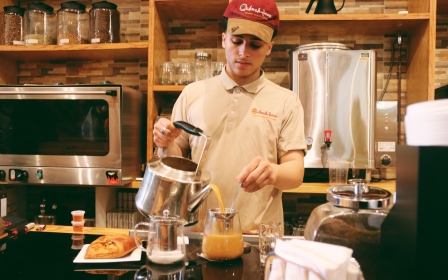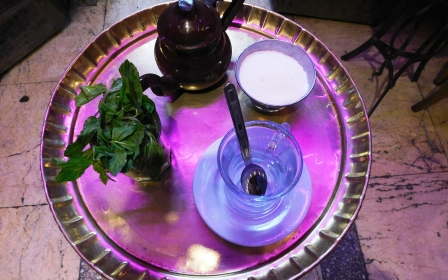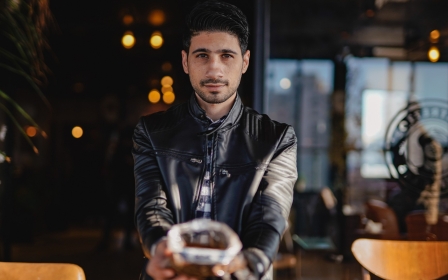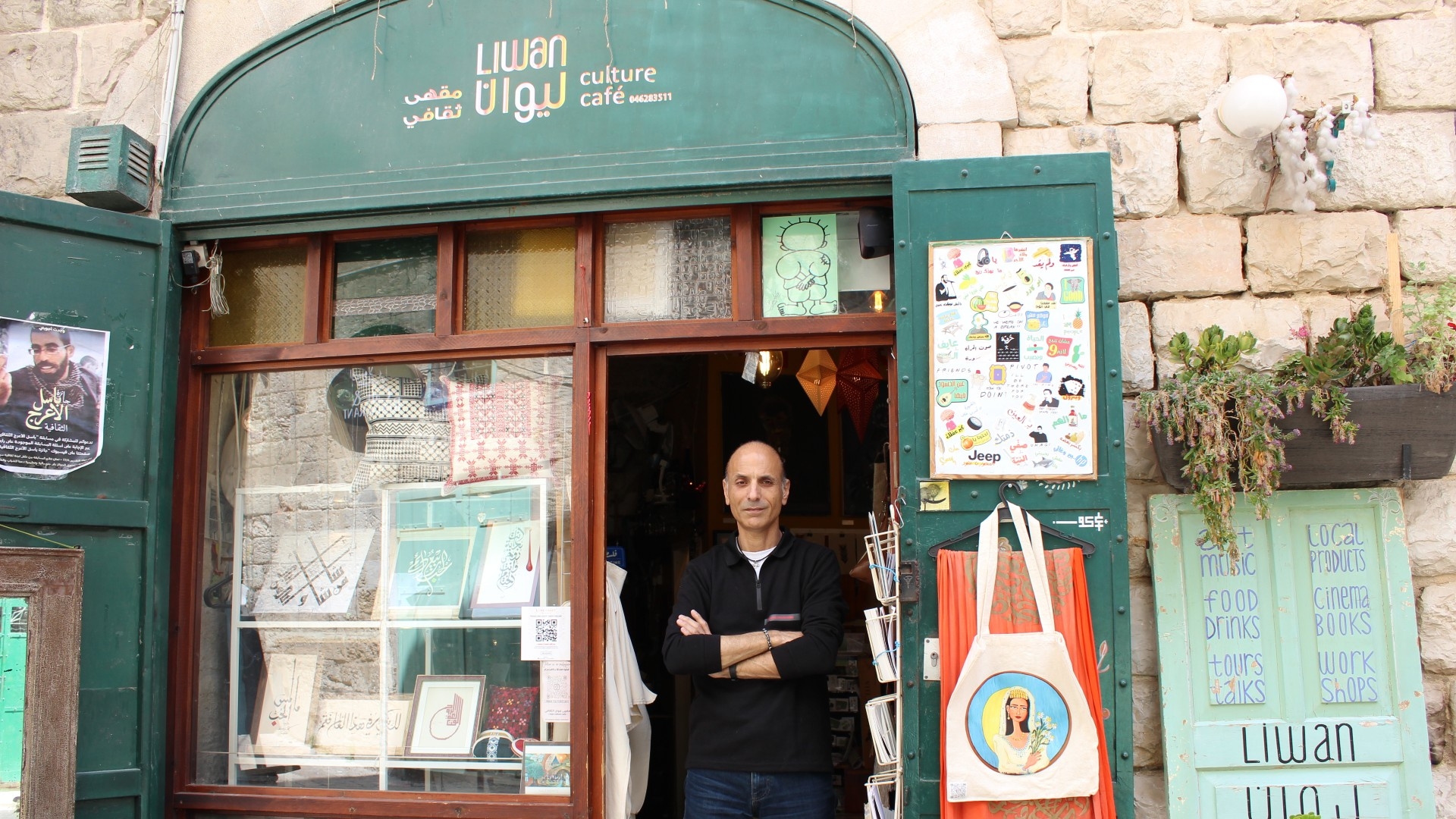
In pictures: The Palestinian cafe trying to revive Nazareth's Old City
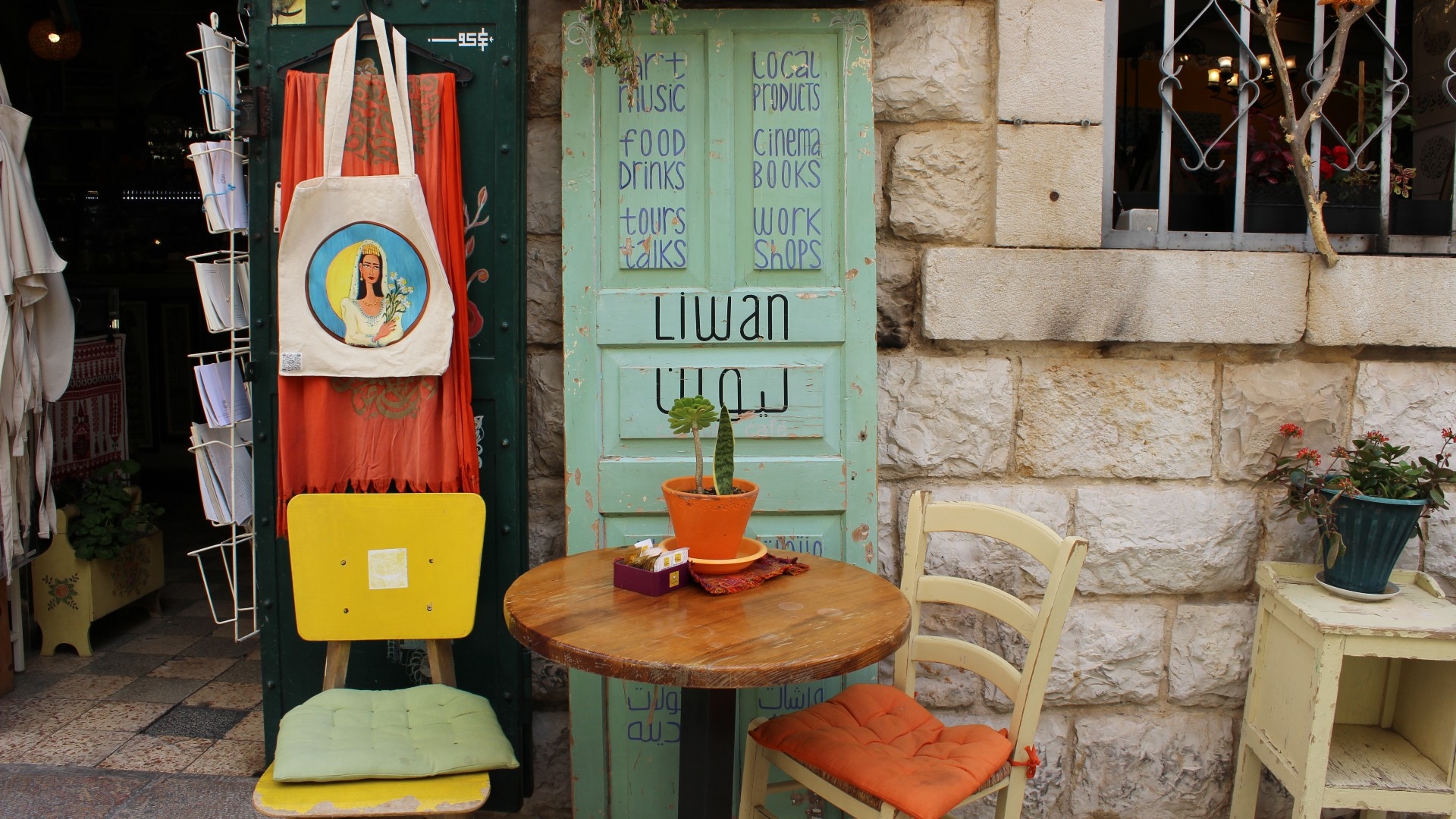
Nestled in Nazareth's Old City, a small yet vibrant cafe welcomes visitors with its colourful exterior and outdoor seating. The Liwan Cultural Cafe was founded just over a decade ago by Sami Jabbaly, his girlfriend at the time, and their friends Sally Azzam and Jonathan Cook. It has since become a popular destination for both locals and tourists. More than just somewhere to get a coffee and ka'ak - a traditional date-stuffed biscuit - the cafe hopes to help to revive the Old City, foster community, and support local Palestinian craftspeople. (All photos by MEE)
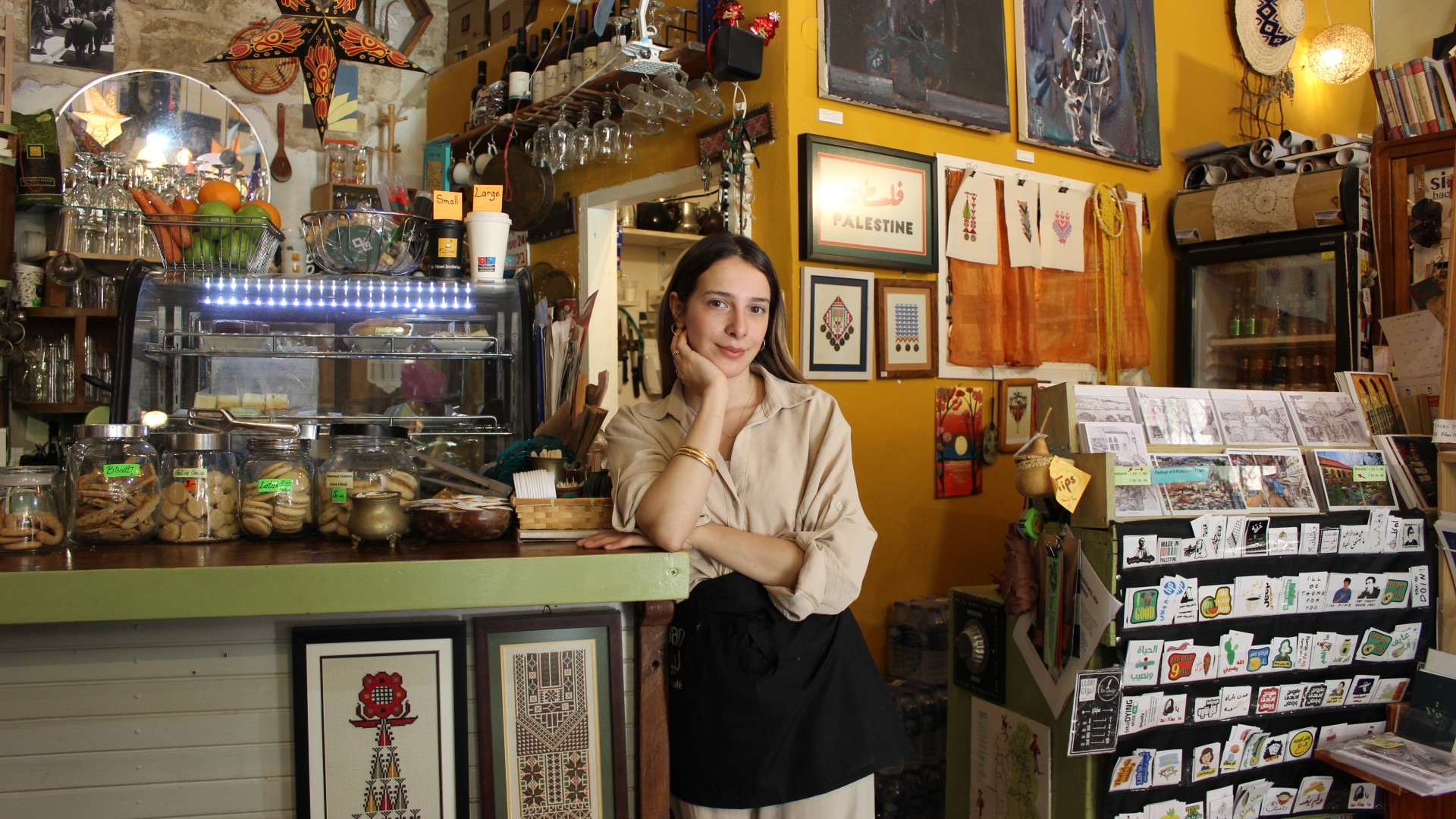
Furnished primarily with fixtures made of upcycled materials, the cafe was established without any formal funding or support. Jabbaly tells Middle East Eye that he felt compelled to set up the business after previous attempts at reviving Nazareth's Old City had failed. "For about 20 years, the Old City has been neglected," he says, referring to the dilapidation that followed the visit by Pope John Paul II in 2000. According to Jabbaly, during that period there was hope amongst locals that the pontiff's visit to the Christian pilgrimage site would help catalyse reconstruction of the area. "There was a project called Nazareth 2000 prior to the arrival of [the pope] with the aim of reconstructing and restoring the entire city. However, many locals feel that they did not reap any benefits from it."
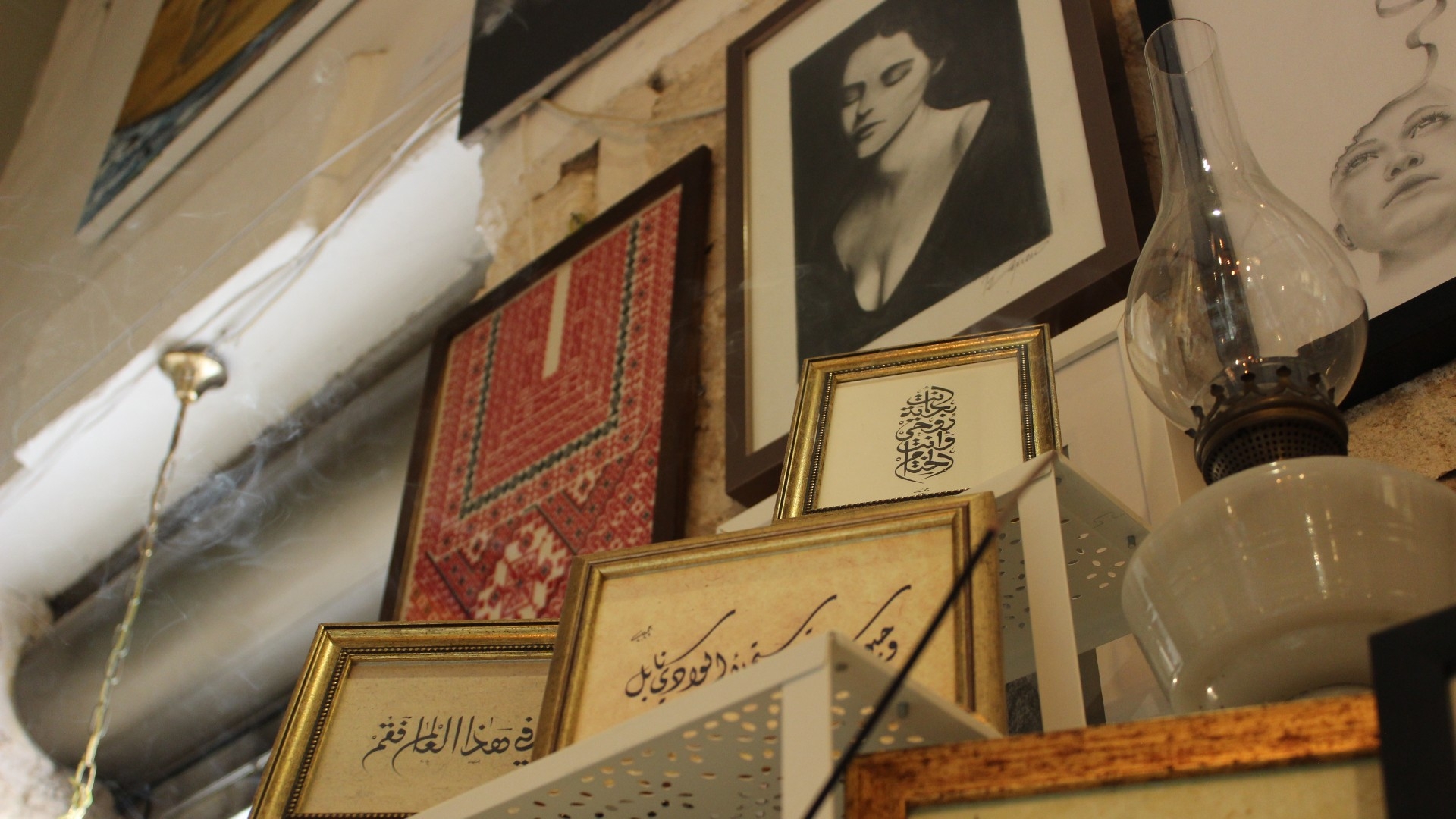
When the cafe originally started, it included a hostel, which was Sami's way of trying to draw more tourists into the area. Their presence, he hoped, would in turn encourage local business people to set up operations. “Our goal was to bring traders back to the Old City and encourage local businesses to operate again. We don’t see local people from Nazareth, so we wanted to bring them back,” he says. The city lies in what is today Israel's northern Galillee region.
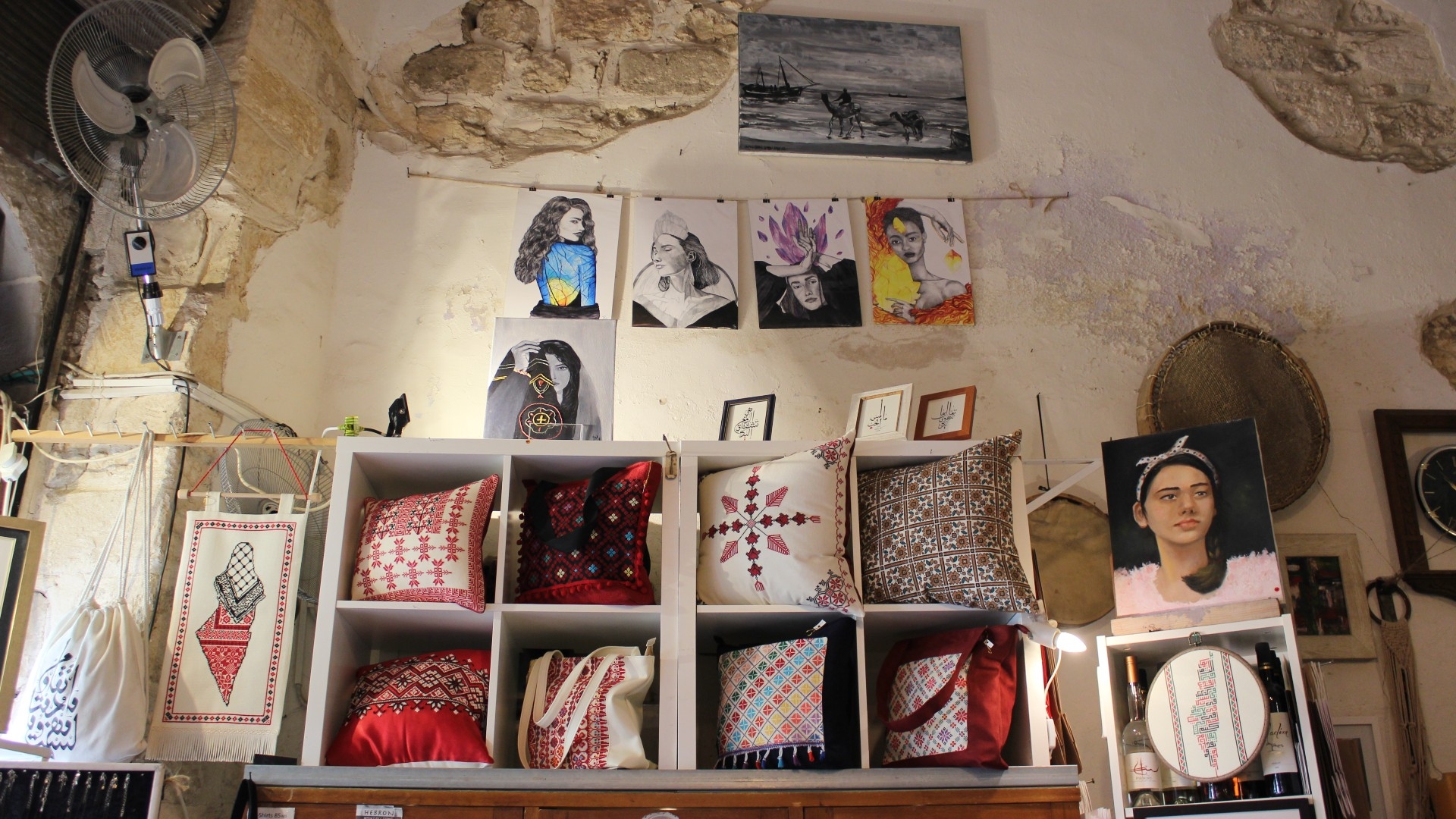
The cultural cafe exhibits a wide array of locally crafted treasures, including embroidered tote bags, leather goods, and Phoenician-style glassware. Collaborating with artisans from Gaza, the cafe also displays intricately hand-embroidered purses, bags, and pillowcases. Despite the challenges posed by Israeli restrictions on the movement of people and goods, Jabbaly remains steadfast in his commitment to showcasing Palestinian talent and providing them with support. “The items here are all showing and telling the story and narrative which not many people know about. Many Israeli or Jewish tourists from around the world don’t know the real story of Palestinians, or about the Nakba and the destroyed villages,” Jabbaly explains.
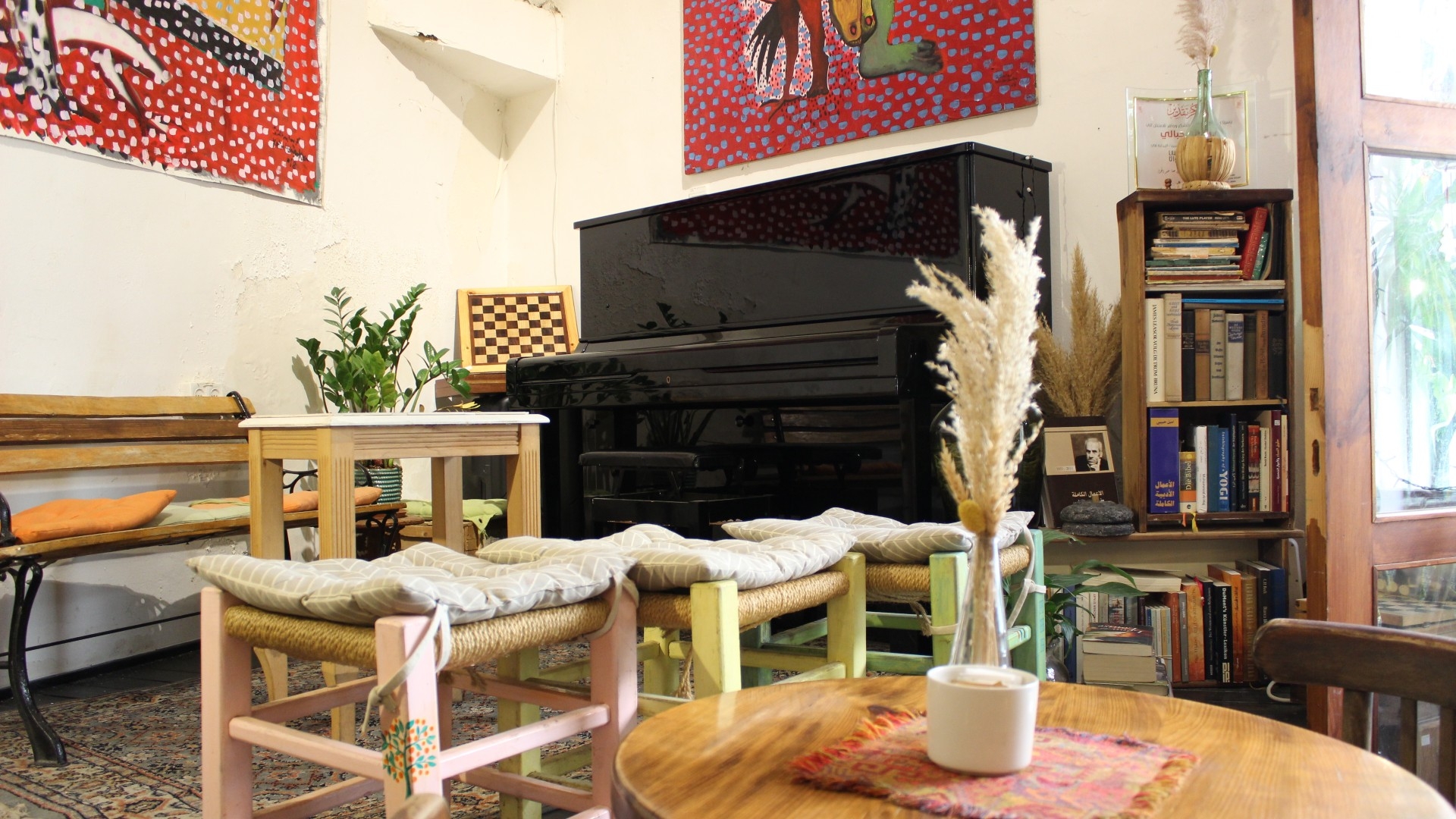
The cafe also hosts cultural events and activities that promote Palestinian heritage. These include poetry readings, musical performances, and film screenings that shed light on the history of Palestine and the Israeli occupation. A small stage and gallery area in the cafe serves as a space for professors, authors, and academics to engage in discussions on topics related to Palestine. “Israelis are welcome to come and watch what is being presented, our goal through this cosy cafe is just to have a space where people can discuss these topics and not shy away," Jabbaly says.
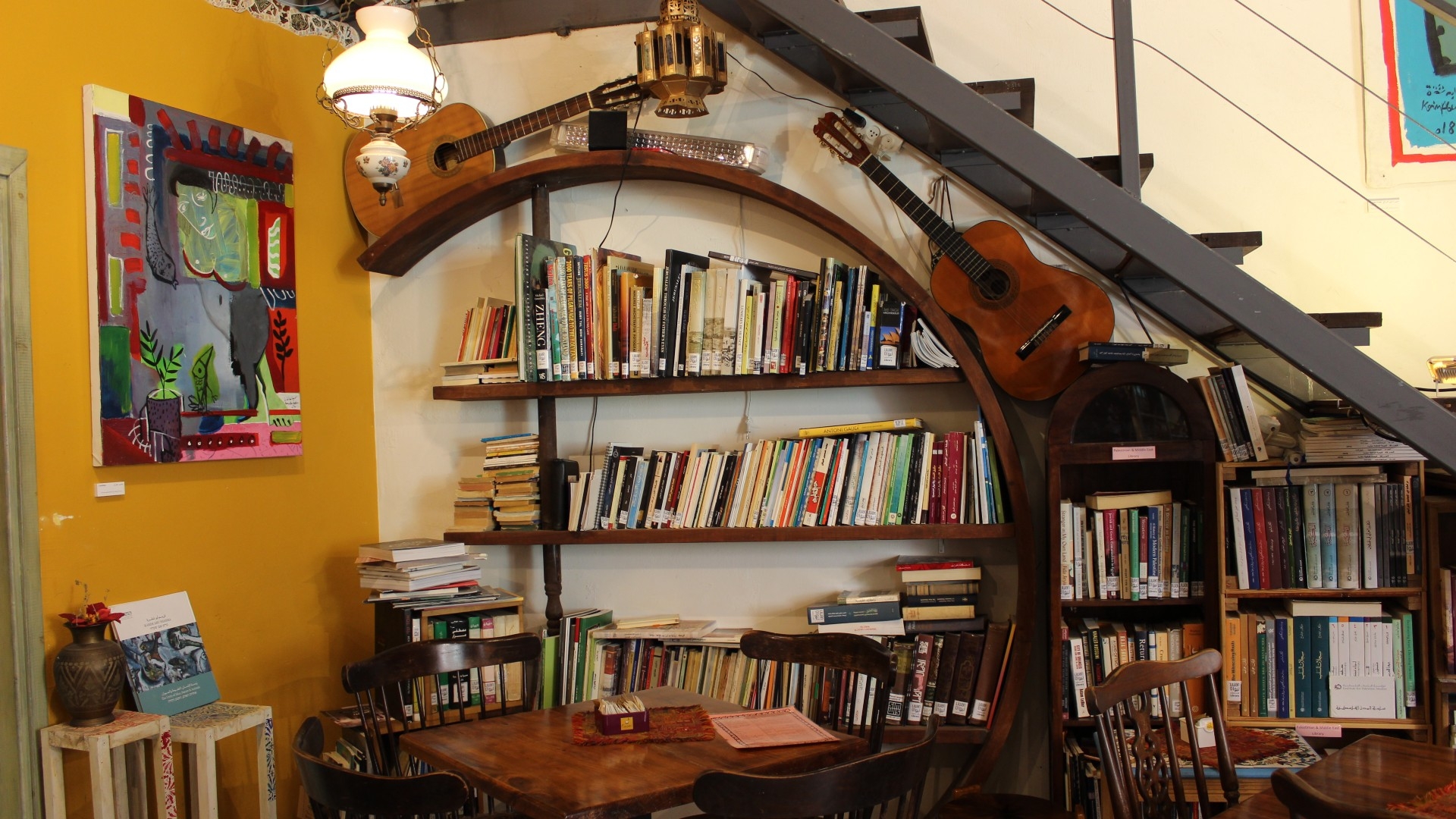
In the early stages of the cafe's establishment, Jabbaly initiated "alternative" tours for visiting tourists, aiming to raise awareness about the challenges faced by Palestinians in the city and the impact of the Israeli occupation. These tours provided valuable insights into the ongoing occupation and emphasised the deep-rooted connection that Palestinians maintain with their homeland through things like cuisine and clothing. Jabbaly explains: "We wanted to keep showing the ongoing occupation and wanted to show that we are still attached to this place, through the food, clothes, and everything else."
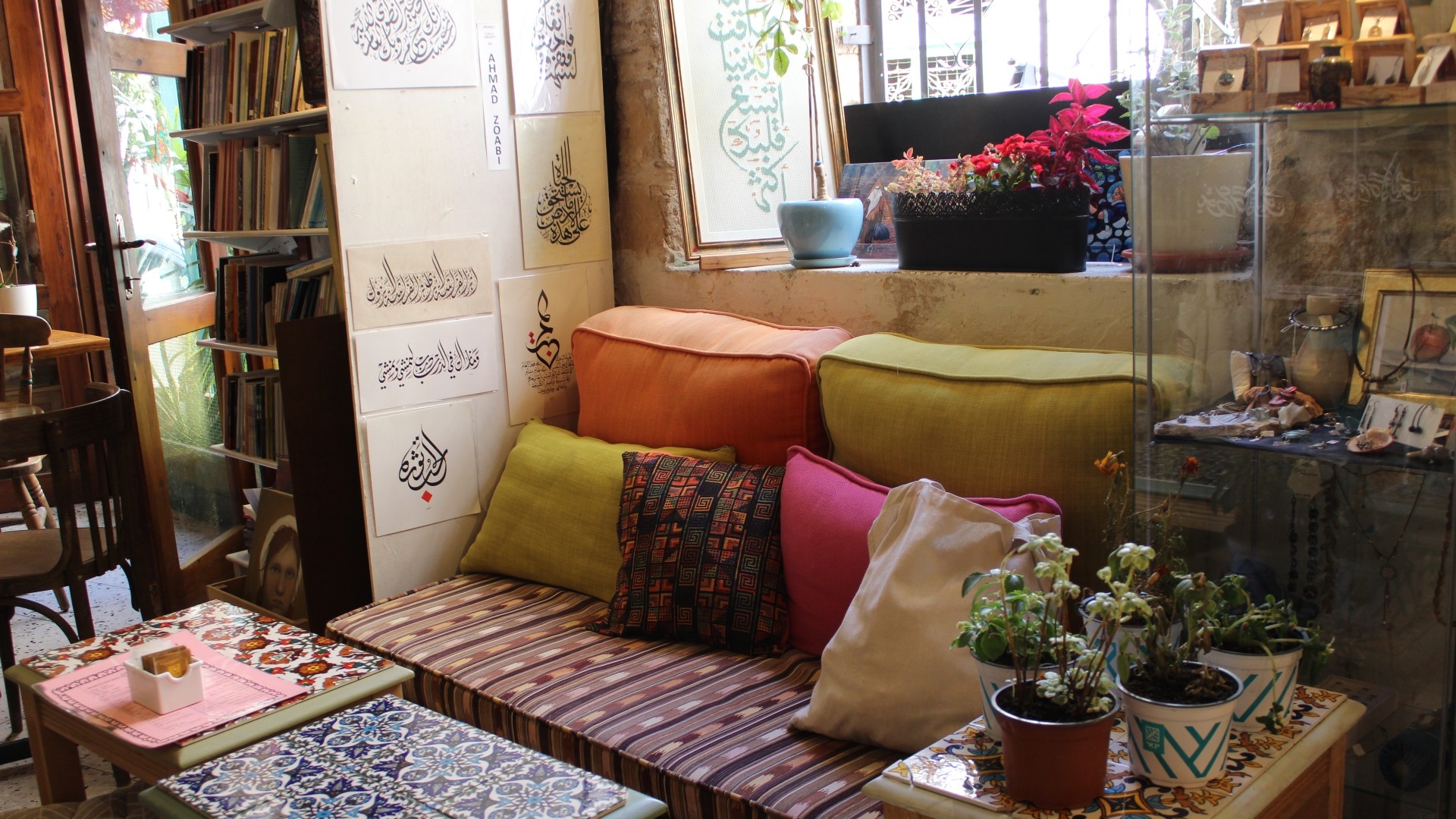
But the cafe has faced some significant challenges. Jabbaly reveals that Israeli authorities impede the ability of local traders to operate in the area by making things like getting permits a cumbersome process. “You need permission to do everything,” says Jabbaly. His tours are also a source of consternation for the Israeli authorities, who object to his descriptions of Palestinian villages nearby, which have had their names changed from Arabic to Hebrew.
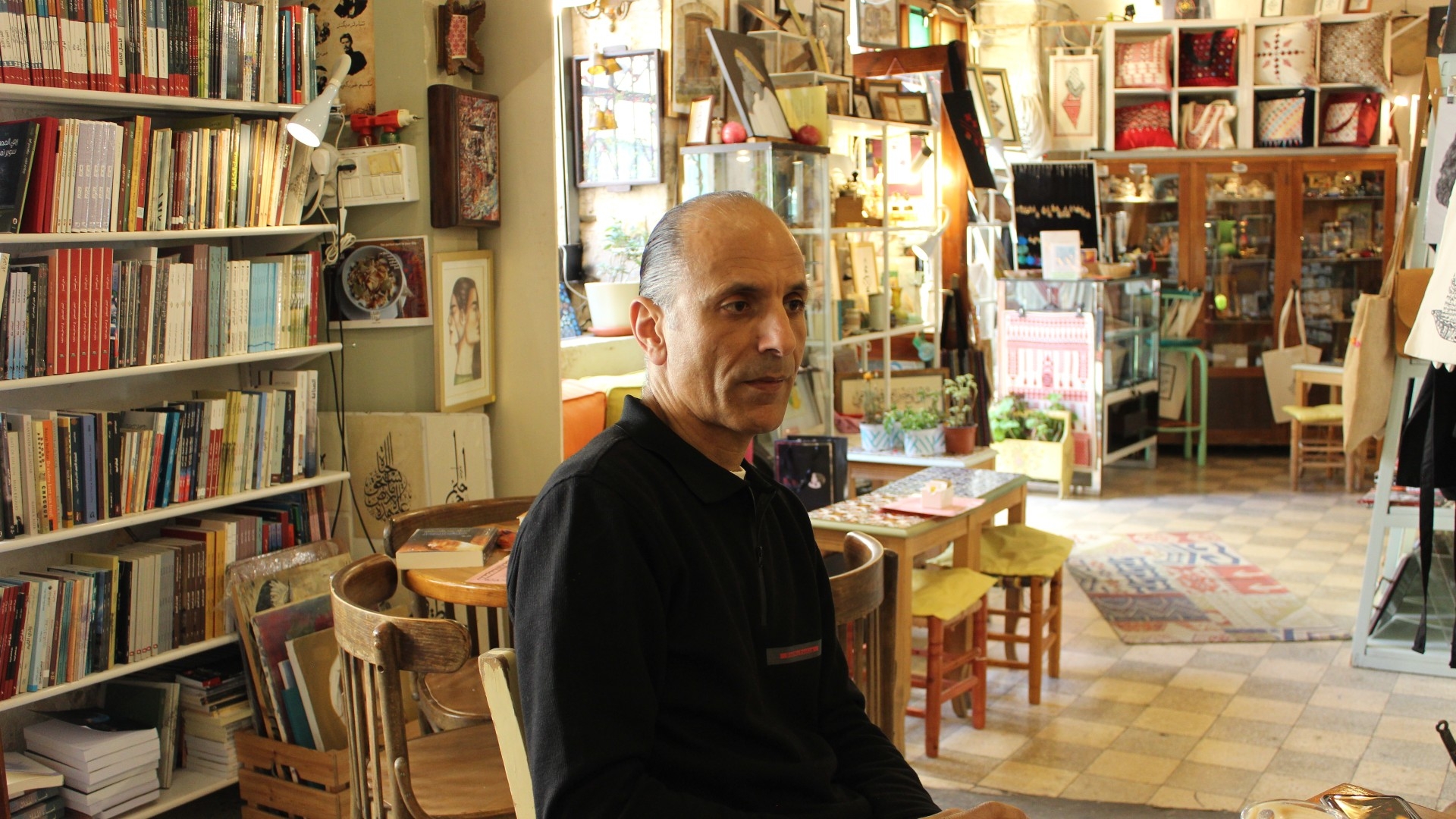
“We have satisfaction when people visit and understand more about Palestinians and solidarity. We have had people come in and automatically start asking questions,” Jabbaly says, describing how tourists react to his cafe. While the cafe has had its share of challenges, it has become a social hub for locals and tourists wanting to engage in conversation and immerse in Palestinian culture over a cup of coffee.
Middle East Eye delivers independent and unrivalled coverage and analysis of the Middle East, North Africa and beyond. To learn more about republishing this content and the associated fees, please fill out this form. More about MEE can be found here.


